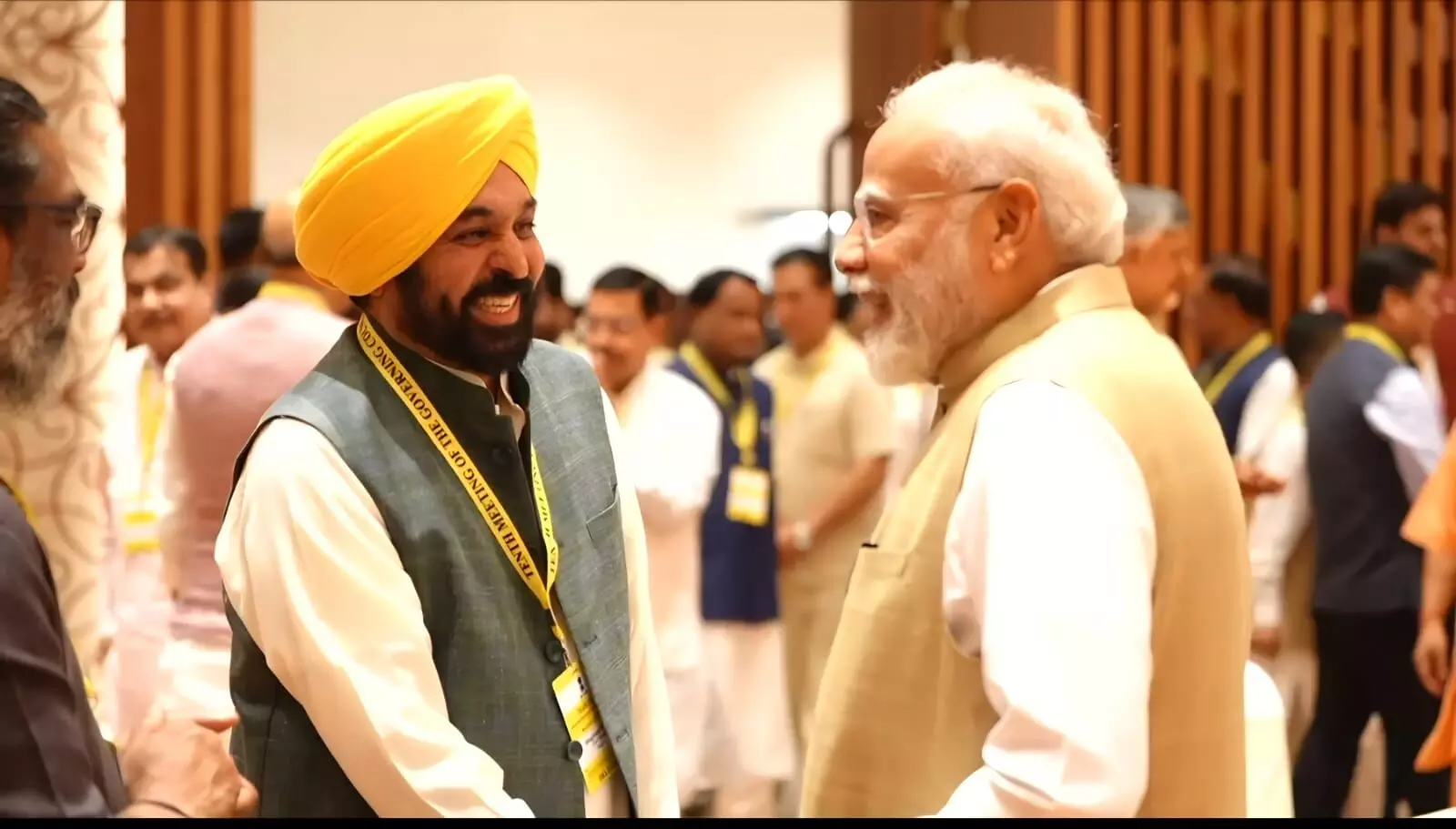Punjab CM Mann alleges 'step-motherly treatment' at NITI Aayog meet, raises key state issues

Punjab Chief Minister Bhagwant Singh Mann on Saturday accused the Union government of "step-motherly treatment" towards the state, telling the 10th Governing Council meeting of NITI Aayog that this "biased and discriminatory" approach was "unwarranted and undesirable."
In a forceful presentation, Mann raised several crucial issues, primarily reiterating Punjab's stance that it possesses no surplus water for any other state. He proposed that a Yamuna-Sutlej-Link (YSL) canal should be considered for construction "instead of" the long-disputed Satluj Yamuna Link (SYL) canal. "Ravi, Beas, and Sutlej rivers are already in deficit; water should be diverted from surplus to deficit basins," he argued, invoking a 1954 Yamuna water pact and a 1972 Irrigation Commission report to assert Punjab's claim on Yamuna waters, which he said were ignored during the 1966 reorganisation.
Mann also launched a sharp critique of the Bhakra Beas Management Board (BBMB), accusing it of bias against Punjab. He highlighted Punjab's severe groundwater depletion (with 76.1% of its blocks over-exploited) and claimed BBMB ignored Punjab's water shortage while releasing 8,500 cusecs to Haryana, far exceeding its "genuine demand" of 1,700 cusecs and against Punjab's consent. He demanded that BBMB operate legally, efficiently, and transparently, alleging marginalisation of Punjab's officers.
The Chief Minister further objected to the Centre's decision to deploy the Central Industrial Security Force (CISF) at Bhakra Nangal Dams, calling it an "unnecessary" step that "degrades the right of Punjab." He demanded its immediate revocation.
On Chandigarh, Mann insisted on maintaining the 60:40 ratio of Punjab and Haryana officers in the Union Territory's administration. He alleged a "systematic erosion" of this balance, with key posts going to junior AGMUT cadre officers, terming it "against the very spirit of cooperative federalism."
Mann sought the immediate release of Rs 938.26 crore in pending arrears under the Post-Matric Scholarship Scheme for SC Students, blaming a 2018 change in 'Committed Liability' criteria for an unsustainable thirteen-fold increase in the state's burden. He also urged funding of Rs 600 crore, shared with the Centre and Rajasthan, for desilting the Harike Head works to prevent flooding and restore capacity.
While affirming Punjab's commitment to 'Viksit Bharat @2047', Mann showcased his government's initiatives, including 'Rangla Punjab', doorstep service delivery, Aam Aadmi Clinics, 'Sadak Surakhiya Force', Schools of Eminence, and 'Invest Punjab'.
The Chief Minister presented a comprehensive list of demands, including:
Fiscal Reform: Increasing the states' share in the divisible pool to 50% and including cesses.
Border Support: A special industrial package for border districts (on par with J&K), infrastructure grants, and hiking farmer compensation for land beyond the fence to Rs 30,000/acre.
Security: Restoration of allowances for Border Wing Home guards and a Rs 2,829 crore grant for anti-drug measures and border security, including 50 drone jammers.
Economic Boost: An Economic Corridor along the Delhi-Katra Expressway, a Special Economic Zone (SEZ), a Global Manufacturing Hub, and extensions of STPI in Mohali.
Agriculture: Incentives for crop diversification (Rs 17,500/hectare for maize), BT-III cotton approval, and agro-processing support.
Food Security: Increasing NFSA allocation from 5kg to 7kg.
"We reaffirm Punjab’s dedication to cooperative federalism and to building a Viksit Bharat by 2047 through mutual collaboration," Mann concluded.
